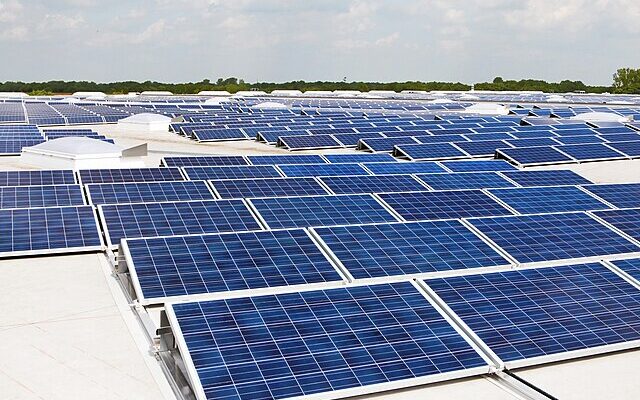
Solar panels have become a popular choice for generating clean and sustainable energy in homes and businesses. Understanding how they work and the benefits they offer can help you make informed decisions about using solar powers. They reduce electricity bills, lower carbon footprints, and require minimal maintenance. Though installation costs can be high, government incentives make solar energy a cost-effective and eco-friendly choice, enhancing property value and promoting sustainability.
How Solar Panels Convert Sunlight into Electricity
Understanding how solar battery convert sunlight into electricity can help you appreciate their role in sustainable energy and make informed decisions about adopting solar technology.
1.The Basics of Solar Panels
Solar panels, also known as photovoltaic panels, are made up of many individual solar cells. The primary function of these cells is to absorb sunlight and convert it into electrical energy through the photovoltaic effect.
2.The Photovoltaic Effect
When sunlight strikes the surface of a solar cell, it releases photons. These photons then interact with the semiconductor material, exciting its electrons and creating electron-hole pairs.
3.Structure of a Solar Cell
A typical solar cell consists of two layers of silicon: the n-type (negative) and p-type (positive) layers. These layers create an electric field at their junction. When photons from sunlight hit the solar cell, they energize electrons in the n-type layer, causing them to move toward the p-type layer. This movement creates an electric field that drives the electrons towards conductive plates, generating a direct current (DC).
4.From DC to AC
To convert DC to AC, an inverter is used. The inverter takes the DC electricity produced by the solar battery and converts it into AC electricity, making it compatible with home electrical systems and the grid.
5.Powering Your Home
Once the electricity has been converted to AC, it can be used to power your home’s electrical appliances. Solar battery typically works best in sunny conditions, but advancements in technology have improved their efficiency even in less optimal weather.
Benefits of Using Solar Panels
As the world increasingly shifts toward renewable energy sources, understanding the benefits of using solar battery can help individuals and businesses make informed decisions about adopting this technology. Here’s a comprehensive look at the key benefits of using solar battery.
1.Reduction in Electricity Bills
Solar panels generate electricity from sunlight, which means you can produce your own energy and reduce the amount of power you need to purchase from the grid. This can lead to substantial savings over time, especially in areas with high electricity rates and ample sunlight.
2.Environmental Impact
Solar panels provide a clean, renewable energy source that significantly reduces greenhouse gas emissions and pollution. By harnessing sunlight, they help lower reliance on fossil fuels, conserve natural resources, and improve air quality. Solar energy also reduces water usage compared to traditional energy sources, making it a key component of a sustainable and eco-friendly future.
3.Energy Independence
Solar panels boost energy independence by generating your own electricity, reducing reliance on external sources, and protecting against energy price fluctuations and outages. This provides greater control over your energy supply and enhances resilience.
4.Low Maintenance Costs
Solar panels require minimal maintenance, with routine cleaning and occasional inspections usually sufficient. Their durability and reliable performance mean that upkeep costs are low compared to other energy systems, making them a cost-effective and hassle-free energy solution.
5.Government Incentives and Rebates
Government incentives and rebates significantly reduce the cost of installing solar battery, making them more affordable. These financial benefits can include tax credits, grants, and rebates that lower the initial investment and improve the return on investment. By taking advantage of these programs, homeowners and businesses can offset installation costs and make solar energy a more economically viable option.
6.Energy Reliability
Solar panels provide a reliable source of energy, especially when combined with energy storage solutions like batteries. In areas prone to power outages or with unreliable grid infrastructure, solar battery can offer a dependable backup power source, ensuring that you have access to electricity even during disruptions.
7.Technological Advancements
Ongoing advancements in solar technology continue to enhance the efficiency and performance of solar battery. Innovations in solar cell design, materials, and energy storage are making solar power more efficient and accessible. These advancements ensure that solar battery remain a cutting-edge solution for sustainable energy.
8.Contribution to a Sustainable Future
By choosing solar panels, you are making a commitment to a more sustainable future. Solar energy is an abundant resource that can play a crucial role in reducing our reliance on finite fossil fuels. Supporting solar technology helps promote a cleaner, greener planet for future generations.










